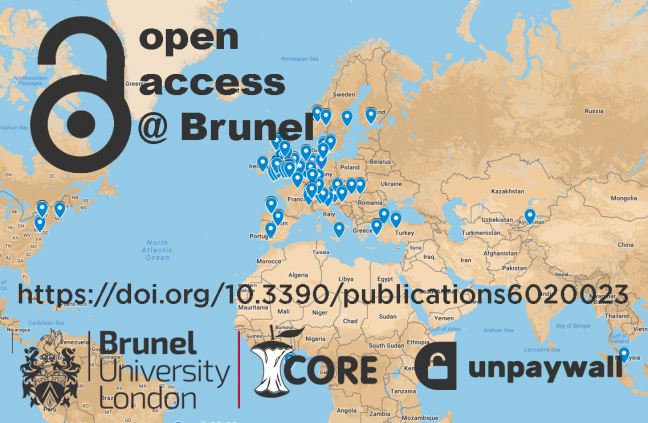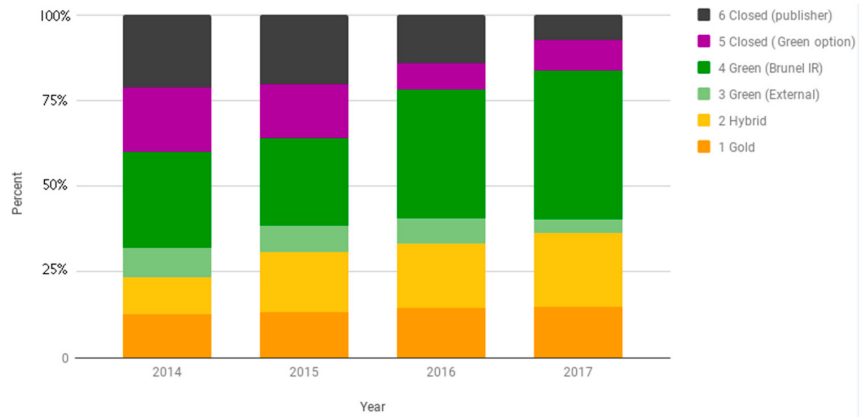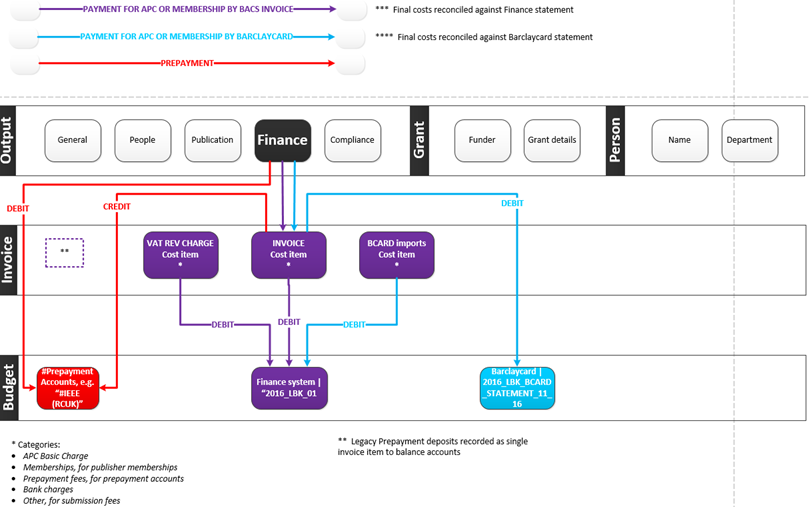The Scholarly Communication Office represented by David Walters and Chris Daley spoke to YERUN (Young European Research Universities) members this week about local open access policies and their relationship with international research collaboration.
You can find the video online at the link below and all the presentations are due to be shared on the YERUN website shortly. There were lots of other interesting talks about developing research organisations’ links with business, open science and other exciting topics.
Abstract:
David Walters and Christopher Daley from Brunel University London explore the complexities of the current UK open access (OA) policy landscape and examine the concurrent emergence of open science services which aim to provide global OA data. Using the results of their recent study, they will consider whether the global data on open access activity reveals tensions between natural research collaboration and policy drivers implemented at an institutional level.



